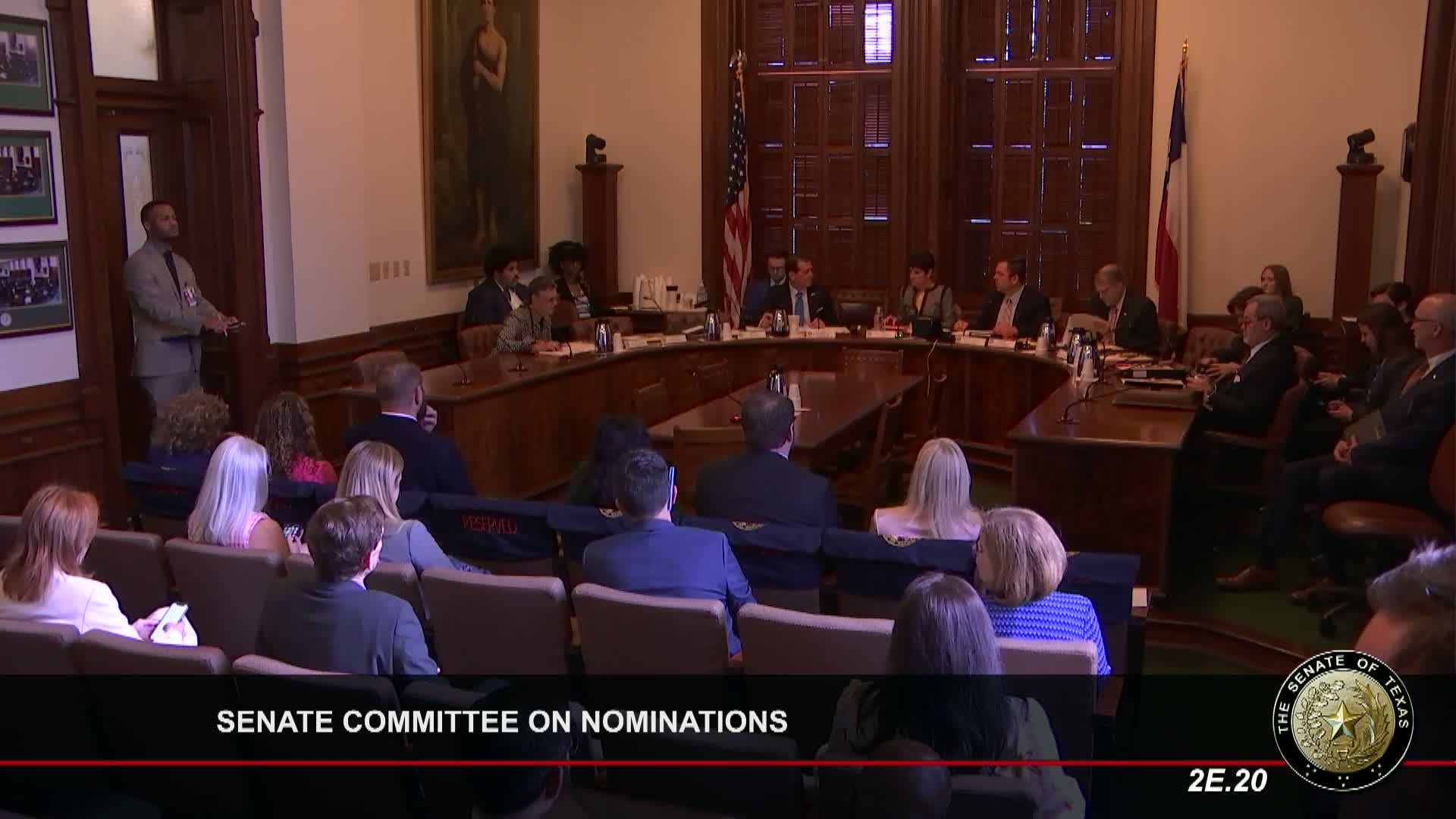Senate committee grills TCEQ nominees on rulemaking, MUDs, batch-plant permits
Get AI-powered insights, summaries, and transcripts
Subscribe
Summary
Reappointments to the Texas Commission on Environmental Quality drew questions on how the agency ensures rules match state law, how it approves municipal utility districts, and how it enforces permits for concrete batch plants and water availability.
The Senate Committee on Nominations heard testimony April 14 from Brooke Popp, the governor’s nominee to continue as chairwoman of the Texas Commission on Environmental Quality, and Katarina Gonzales, a commissioner appointed last year, with senators pressing the pair on rulemaking, MUD creation authority and permitting enforcement.
Why it matters: TCEQ enforces state and federal air and water laws for communities across Texas. Committee members said growth and new development are creating friction between environmental permitting and local impacts — including roads, schools and water supplies — and asked how the agency ensures it remains within the law while carrying out reviews and issuing permits.
Brooke Popp, introduced to the committee as the former chair of the Texas Water Development Board, described her background overseeing the agencyloan portfolio and major projects and said she would not use the commission to make policy. "I do not legislate," Popp told senators. "The law is my North Star." She said TCEQhas a multi-step legal review: rules go to the commissiongeneral counsel (who advises the commission, not the agency), then to senior legal advisors, and are scrubbed before reaching the commissioners.
Senators pressed Popp and Commissioner Gonzales on ex parte restrictions for decisionmakers and on the agencyprocess for avoiding rules that conflict with statutes. Popp said she had been briefed on prior instances where rules were found to contravene law and promised, "That will not happen on my watch." Gonzales said she had returned two proposed rules since being a commissioner because she believed they did not comply with the enabling legislation.
Municipal utility districts (MUDs) drew sustained questioning from senators worried about second- and third-order effects such as school capacity, road wear and county budgets. Several senators noted that TCEQ can create MUDs when the Legislature is not in session and that those districts acquire taxing powers. Popp responded: "If that is the will of the legislature, then that is the will of the legislature. ... We will absolutely abide by it." She said the agency follows existing statutory authority when it approves MUDs and that road powers and certain local approvals come from counties or other entities rather than TCEQ.
Concrete batch plants and local air impacts were also a focus. Senator Carol Alvarado told the committee Harris County has “156” batch-plant permits and said residents complain about dust, noise and truck traffic adjacent to homes and schools. Popp said siting, traffic and some local impacts are outside TCEQauthority but defended the agencyair staff and said the agency will not issue a permit that is not "protective of public health." She told the committee she supports Senate Bill 763, which would mandate a six-year protectiveness review of standard permits, and said staff told the committee that a six-year cycle would not be unduly burdensome.
On enforcement and transparency, both nominees cited work since the Sunset review to overhaul public-facing systems: updated web forms, a new permit-search portal, and expanded public-participation tools. Popp said TCEQ increased its maximum civil penalty as part of Sunset recommendations to as much as $40,000 per violation per day and said the agency has broadened outreach through its 16 regional offices. Gonzales said she has visited all 16 regional offices since taking office to learn staff responsibilities and day-to-day challenges.
Water availability and attestations for MUDs drew direct concern. Senators asked how TCEQ verifies that a developerattesting to "firm water" has sufficient measured supplies for 20to 25 years. Popp said attestations are signed under oath but acknowledged she wanted stronger verification and said she would ask staff to review current practices.
Committee disposition: The committee did not take a final confirmation vote on the TCEQ nominees during this hearing; the nominations remained pending.
The committee heard repeated requests from senators for TCEQ to clarify the limits of its authority for the public, and both nominees emphasized their intent to follow statutes and to expand transparency and outreach.
